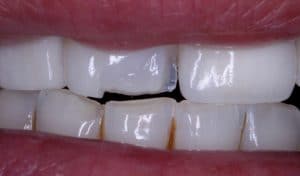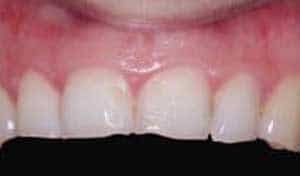Bruxism and Teeth Grinding Treatment in Narellan
Teeth grinding, or bruxism, is a condition that places constant pressure on your teeth and jaw. Many people are unaware they grind until they notice worn teeth, morning headaches, or jaw discomfort. Because it often happens during sleep, the signs are easy to miss until the damage becomes obvious. Without treatment, bruxism can lead to tooth fractures, failed dental work, chronic pain, and long-term jaw problems.
At First Choice Dental in Narellan, we help patients identify and manage bruxism before it causes irreversible harm. If you’re experiencing soreness, changes in your bite, or visible wear on your teeth, it’s time for a professional assessment.
What is Bruxism?
Bruxism is the involuntary clenching or grinding of teeth. Some people do it during the day, usually in times of stress, while others grind unconsciously at night. Over time, this habit places significant strain on both teeth and jaw joints, leading to discomfort and dental complications.
Common Signs of Teeth Grinding
Jaw pain or stiffness on waking
Frequent headaches, especially near the temples
Teeth that appear flat, chipped, or shorter than before
Increased tooth sensitivity
Fractures in fillings, crowns, or veneers
Clicking or popping in the jaw joint
Reports from a partner of loud grinding during sleep
These symptoms should not be ignored. A dental evaluation can confirm whether bruxism is the cause and prevent further damage.
Why Early Treatment Matters
Teeth grinding is not simply a habit — it is a condition that can seriously compromise oral health. Consequences include:
- Worn, cracked, or broken teeth
- Damage to crowns, veneers, or fillings
- Persistent jaw pain and TMJ disorders
- Ongoing headaches and sleep disruption
- Changes to the shape and appearance of your smile
Early diagnosis and management protect your teeth, reduce discomfort, and prevent costly restorative work later.
Bruxism Treatment at First Choice Dental
Every patient is different, and so is the way bruxism affects them. At First Choice Dental, we carefully examine the teeth, bite, and jaw to determine contributing factors such as stress, alignment, or sleep patterns. Treatment may include custom night guards, bite adjustments, or guidance on managing llifestyle triggers — all part of our comprehensive bruxism treatment in Narellan designed to protect your teeth and jaw. Our focus is on long-term solutions that safeguard your smile and restore comfort.
Why Patients Choose Us
Patients across Narellan and the wider Macarthur region turn to First Choice Dental because they want trusted care from one of the best dentists in Narellan for long-term oral health.
- We provide precise diagnosis and tailored treatment — not generic solutions.
- Our team combines years of clinical experience with a patient-first approach.
- Modern diagnostic tools help us detect and address problems accurately.
- We treat patients of all ages, making care convenient for families.
- Our location is easily accessible from Camden, Oran Park, Harrington Park, Mount Annan, and surrounding suburbs.
Take the Next Step
Bruxism is more than an inconvenience — it’s a condition that can harm your teeth, disrupt sleep, and cause lasting discomfort. At First Choice Dental in Narellan, we provide effective solutions to protect your smile and improve daily comfort. Call us today to arrange your consultation and take control of your oral health.
Useful Links
FAQs
What causes teeth grinding?
It can result from stress, sleep issues, bite alignment, lifestyle habits, or certain medications.
Do children grind their teeth?
Yes, especially at night. While it may reduce as they grow, a dental check is important to prevent lasting effects.
How do I know if I grind at night? Common signs include waking with jaw pain or headaches, or being told you grind by a partner. Dentists can confirm by examining wear patterns on your teeth.
Will it go away on its own?
In most cases, bruxism continues unless addressed. Early management prevents long-term damage.
Can it damage cosmetic dental work?
Yes. Veneers, crowns, and fillings can fracture under the pressure of grinding. Managing bruxism is essential to protect existing dental work.
What should I do if I think I grind my teeth?
Book an appointment. We will assess your teeth, confirm the diagnosis, and Recommend appropriate treatment. Many patients search for a dentist for teeth grinding in Narellan, and our clinic has extensive experience managing this condition.
Book an Appointment
by calling us on 02 4647 4570
Our Location
Suite 3, 20 Somerset Ave Narellan NSW 2567





